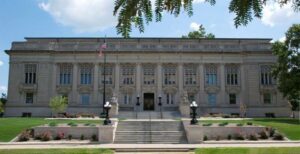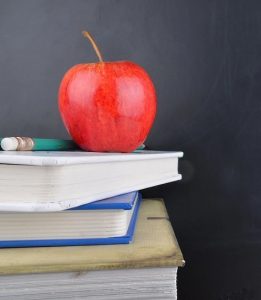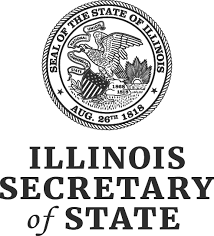Illinois Supreme Court Upholds Ruling Blocking Law That Limits Candidate Slating

SPRINGFIELD – The Illinois Supreme Court recently upheld a lower court’s ruling that blocked controversial election legislation signed into law by Gov. JB Pritzker in May.
State Senator Dave Syverson (R-Cherry Valley), who opposed the bill in the Senate, expressed relief that the courts rejected yet another attempt by Gov. Pritzker’s allies to reduce voters’ choices and manipulate the electoral process. With the most recent ruling, candidates who had collected the required number of petition signatures by the official deadline will now be placed on the ballot for voter consideration.
Senate Bill 2412 aimed to halt the practice of slating candidates to fill ballot vacancies for the current election cycle, even as candidates were already collecting petition signatures and rearranging their lives to run for office. Republican lawmakers criticized the bill as an attempt to benefit Democratic incumbents and reduce voter choice in the upcoming election.
Gov. Pritzker’s legislative allies petitioned the court to revisit the earlier ruling, but the Illinois Supreme Court affirmed the lower court’s decision, declaring the law unconstitutional since it attempted to alter election rules after the election cycle had begun. If the law Gov. Pritzker signed had taken effect, it would have prevented numerous candidates from being placed on the ballot in the 2024 General Election. The measure drew swift criticism from many, including good-government advocates, who viewed it as a blatant power grab by Democratic lawmakers to give vulnerable incumbents an advantage in November.
Tax Credits Available for Parents and Educators

With a new school year under way, the Illinois Department of Revenue is reminding eligible taxpayers that they may claim back-to-school expenses for their K-12 students on their 2024 individual income tax returns. With the high cost of living and taxes placing significant strain on working families, every bit of financial relief counts.
The Illinois Education Expense Credit allows parents or legal guardians of a full-time K-12 student younger than 21 to take a 25 percent tax credit on qualified education expenses over $250, up to a maximum credit of $750. Eligible expenses include tuition, book rental, and lab fees paid to the school where the student is enrolled full-time. For families who homeschool, book rental and lab fees that exceed $250 also qualify, provided they are part of an approved home school program.
In addition to the credit for parents, Illinois also offers the K-12 Instructional Materials and Supplies Tax Credit for educators. Teachers, instructors, counselors, principals, and aides working in a qualified school for at least 900 hours during the school year can claim up to $500 for out-of-pocket expenses on classroom materials. For educator spouses filing jointly, the maximum credit doubles to $1,000.
Additional information regarding both tax credits may be found by visiting the Department of Revenue’s website attax.illinois.govand Pub-112, Education Expense Credit General Rules and Requirements for Schools, Home Schools, Parents, and Guardians.
New Law to Prevent Accidents Involving Hazardous Materials

A new law to educate new drivers about vehicles hauling hazardous materials was introduced earlier this year following a tragic accident involving a tanker carrying hazardous substances, which resulted in multiple fatalities and injuries.
Senate Bill 3406 requires the Illinois Secretary of State to include information on hazardous material placards in the “Rules of the Road” publication, which is used in driver’s education programs. By educating drivers on how to recognize and respond to vehicles carrying hazardous materials, the law seeks to reduce the number of accidents involving these vehicles and prevent similar tragedies in the future.
The legislation was passed by the General Assembly May 20 and signed into law by the Governor on Aug. 9.
Illinois Has Record Tourism Growth in 2023

The Illinois Department of Commerce and Economic Opportunity (DCEO) and the Illinois Office of Tourism recently reported that Illinois welcomed 112 million domestic and international visitors in 2023, resulting in $47 billion in visitor spending.
This is an increase of 1 million visitors and more than $3 billion in spending compared to the previous year, according to data from Tourism Economics. In 2023, leisure travel in Illinois also saw notable growth, with an increase in overnight leisure stays statewide by 4.3 percent.
The influx of visitors also increased visitor spending, surpassing pre-pandemic levels and marking a 4 percent increase over 2019 numbers. The economic impact of this tourism activity, including indirect and induced effects, reached $83 billion, a 6.4 percent increase from 2022.
Currently, DCEO is offering $5 million in tourism funding opportunities through the Route 66 Grant Program and the International Tourism Grant Program to continue to boost tourism and cultural preservation across Illinois. To learn more, visit the DCEO website.

